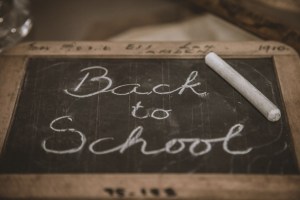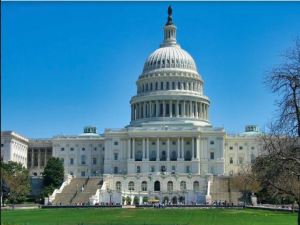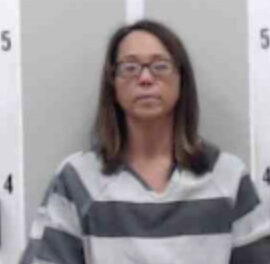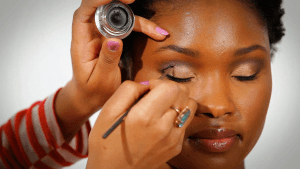“Will you be masked while teaching?” asked a masked parent from the back of the crowded classroom.
“I will not,” the homeroom teacher answered, emphasizing the “not.”
“I will,” her Spanish-language teaching partner answered.
A few miles away, at about the same time the doors to the open house swung open, Dr. Janet Memark, director of public health for Cobb and Douglas counties, sat down in a conference room to record a somber update.
“We are up to 235 cases per 100,000 since last night” for new infections over a two-week period, Memark said, delivering a message for community channels, news outlets and YouTube.
“So that has blown us past high transmission,” she said.
“And I heard today our numbers are looking even worse.”
Back in early May, when my family had to decide whether to send our daughters to their suburban Atlanta school for face-to-face learning in the upcoming school year, I was comfortable with the decision to let them go back. The coronavirus caseload in Cobb County at the time was low. Plus, the school had a mask mandate.
By the time of the open house, neither was true. Cobb County reversed course on its mask mandate in June and refused to budge even after the Centers for Disease Control and Prevention, whose headquarters is two counties over, on July 27 recommended masking for all K-12 students and teachers,even vaccinated ones.
Three days before the open house, we had requested to change our decision and return to virtual learning. The superintendent’s office denied our request. Too late, it said.
Cobb County Schools, the second largest school district in Georgia and among the first major metro districts nationwide to reopen for the 2021-22 school year, is one of only two of the eight districts in metro Atlanta’s five-county region without a mask mandate. The other is the city school system in Cobb’s county seat, Marietta, which operates as its own district and which ProPublica wrote about last year for its then-rare decision, among Georgia districts, to require masks.
“It’s disappointing that the districts are not implementing the strategies recommended by the CDC to keep these kids safe when there is moderate to high transmission,” said Elizabeth Stuart, a biostatistician at the Johns Hopkins Bloomberg School of Public Health, in reference to the metro Atlanta school districts that are not requiring masks. “It puts families into these really challenging situations.”
The school districts weren’t even heeding the warning of their county’s own public health director: “My best advice is that you go with the CDC recommendations. They are that everybody in K through 12 need to wear their mask,” Memark implored those watching her July 29 recording.
Asked why Cobb County Schools deviated from the CDC and its own county’s public health director on a mask mandate, a district spokesperson would only respond that its public health protocols “are intended to balance the importance of in-person learning and the frequent changes associated with COVID-19. This pandemic continues to impact students, staff, and families differently throughout Cobb County, and we will continue to update our school protocols accordingly.”
When I walked into that open house, I reminded myself of my husband’s words from earlier that morning: “Have an open mind.” When I walked out, I knew there was nothing that would make me feel safe sending my girls to school on Monday.
The car ride home from the open house was filled with excited back-to-school banter between the girls and my husband. I was silent, waiting for him to pull into the driveway and drop me off so he could take the kids for Happy Meals. He and I had planned to talk that night, after the girls and our toddler son went to bed. But I wasn’t sure I could wait that long.
I ignored the knot in my stomach and focused on figuring out Plan B.
Our immediate alternatives were private school (though we could scarcely afford it, and admissions had closed for most of them), home schooling (but what about our jobs?) or moving to another district (if we could find a house in this manic real estate market).
Waiting for my husband to come back from lunch, I threw up a prayer and tried to secure one more last-ditch option. I entered our daughters into a lottery for a virtual-only charter school that had just opened a few hundred additional slots statewide. It was the only free, accredited and teacher-led virtual alternative at the time.
Within five minutes, I received a response: They both got in.
When my husband got back, I intercepted him in the garage and sent the kids upstairs.
“Can we have a pre-meeting?” I begged, then launched right into it: “I don’t like what I saw at the school.”
He was less bothered by what he’d observed than by our girls forgoing another year of in-person learning, arguing that he hadn’t yet seen data to convince him they needed any more protection than their own masks. Besides, he said, if it got bad enough, wouldn’t the school have to go back to virtual learning, anyway?
I countered that the data we were reviewing was based on current behavior, noting that the transmission and hospitalization rates were rising before the kids even packed into the buildings.
That afternoon, between calls to my daughters’ pediatrician and their elementary school to get records that the virtual charter needed, I forwarded the virtual school information to other concerned parents. At least one of them tried to get in, two and a half hours after my attempt. It didn’t work: She was stuck on a waitlist.
The next morning, still locked in a stalemate with my husband, I stopped by the pediatrician’s office to pick up the immunization records I needed. “Am I the only one doing this?” I asked the receptionist.
“No, ma’am, you’re not alone,” she said, holding up a folder full of vaccine records awaiting other parents who’d changed course.
I then went to the elementary school to pick up my daughters’ report cards and un-enroll them. A staff member wrote their names alongside those of more than a dozen students who would not be showing up on the first day of school.
Later, I reached out to Cobb County Schools and other districts to determine how many parents had withdrawn their children in recent weeks. Most districts, including Cobb, said it was not a request they could immediately fulfill.
While I was out trying to handle the new school enrollment, my husband called to apologize. He thanked me for executing a new plan at a time when he was consumed with disappointment for the kids. He just wanted them to be happy, he said, and didn’t want them to feel defeated by the news of another year of virtual learning.
On Sunday, Aug. 1, the day before the first day of school, I wrote an email to Cobb County School District Superintendent Chris Ragsdale, Assistant Superintendent Ehsan Kattoula and the county school board, to let them know we were leaving the county school system for now. I noted that, as difficult as this process had been for us, I couldn’t imagine what other families in tougher spots with fewer resources must be facing.
School board member Charisse Davis, one of three members of the Democratic minority on the Cobb County School Board, wrote back: “With school starting tomorrow, we are hearing from so many parents who are flat out scared about what is going to happen. I have no answers as to why we are rejecting the public health guidelines.” She added, “It almost feels like the last 18 months didn’t happen. We are just back to normal because of what? Denial, fatigue, politics?”
Several parents I spoke with while reporting this story expressed skepticism that COVID-19 could harm them. “We go out to eat. We go to the grocery store. We’ve traveled all summer long,” said Ashley Gentile, a West Cobb mother of two elementary school students. She said that any member of her family could have gotten the virus anywhere, but none had. “For our family, it’s not alarming when we hear numbers have risen in certain schools and certain areas. It doesn’t make us want to keep our kids home.”
Sharon Abney, Gentile’s sister, who lives in East Cobb and is a physical therapist, said the data isn’t concerning to her.
“The kids, yeah, they’re gonna get it, but they’re probably going to be asymptomatic or have a really mild case,” she said. “There are people in our community who believe that because we’re choosing not to send our kids in a mask, we’re killing them. And that’s not what’s happening.”
The same day I sent my email to the district, screengrabs of a message to parents at Cobb County’s King Springs Elementary School, near my daughters’ now-former school, began circulating on social media and in my parent text groups. The message concerned the school’s open house three days earlier. Up top it said in bold red: “Covid-19 Low Risk Letter.”
“Good Evening Everyone,” it read. “We are super excited to get this school year started! Following our wonderful Sneak A Peek on Thursday, we’ve been notified that several families have positive cases of Covid and attended our event. Since this was a fluid event with people mingling throughout the building, we thought it best to send a low risk letter to all families.”
The alert prompted Cobb County school board member Dr. Jaha Howard to request, the day before school started, an emergency meeting for the board to consider the repercussions of the district’s COVID-19 protocols when it came to keeping students safe.
Howard, a pediatric dentist whose three children attend Cobb schools, said he had spoken with dozens of parents who expressed a broad spectrum of opinions on masking in the classroom.
“You have a good number of parents who fundamentally would like to see less people getting infected and less people getting into the hospital, and they’re willing to do what needs to be done so that people don’t get sick,” Howard told me. “You have another group in this county and in this country that fundamentally believe that this virus has to run its course. And they’re not saying it out loud, but what I’m hearing between the lines is: ‘People are going to get sick. Some people are going to have to go to the hospital. Some people might tragically pass, but the best way through it is to literally allow it to take its course.’”
Howard had made previous unsuccessful attempts to get the school board to meet about COVID-19 protocol, including a meeting he tried to call between the board and Cobb’s public health director in June.
Like those previous appeals, his Aug. 1 request also was denied. Board Chair Randy Scramihorn did not respond to a request for comment.
The board’s most publicized agenda item in recent months, which came to a vote in June, had nothing to do with the pandemic. Rather, the board voted to ban critical race theory from its curriculum.
On Aug. 4, the third day of school, Cobb County Schools emailed parents to let them know the district had updated its COVID-19 protocols. One change was that masks, though still optional, were now “strongly encouraged.”
A more significant change had to do with quarantining. The district’s new protocol allowed asymptomatic students and staff who’d been in close contact with a person who’d tested positive to return to school the next day, as long as they agreed to wear a mask for 10 days. The previous protocol was to follow CDC and Georgia Department of Public Health quarantine guidelines , which call for asymptomatic unvaccinated people to isolate at home for between seven and 14 days following a close contact with a coronavirus-infected person.
Not only is Cobb County one of two districts to fail to adopt a mask mandate among the eight in metro Atlanta, but, as of Aug. 4, Cobb has a far more lenient quarantine protocol, too.
Asked what precipitated the change, a Cobb County Schools spokesperson pointed to an Aug. 2 order signed by DPH Commissioner Dr. Kathleen Toomey, which states: “Following guidance from the Centers for Disease Control and Prevention on quarantine remains the safest way to protect teachers and students from the spread of COVID-19. However, recognizing the importance of in-person learning, schools may elect to adhere to different quarantine requirements as developed by the local school district to facilitate in-person learning.”
Yet the order clarifies that schools should adopt “such different quarantine requirements as long as the point of exposure occurred in the school setting” and as long as those exposed remain asymptomatic.
Cobb County Schools did not directly address ProPublica’s questions about how the district would distinguish point of contact or if there was a threshold at which it would adopt a mask mandate.
Over a 12-day period between my children’s school open house and Aug. 9, the second Monday of school, Cobb County and much of the rest of Georgia and the South saw rapid growth in coronavirus infections. In Cobb, cases per 100,000 nearly doubled in that time and the positivity rate went up, as well, a sign that the virus was spreading rapidly.
On Aug. 10, Memark, the Cobb-Douglas public health director, told the Cobb County Board of Commissioners that child cases had grown by 60 percent in the past week — the first week of school — for kids between the ages of 5 and 17. On Aug. 8, Georgia’s seven-day average number of cases among 5- to 9-year-olds reached a peak higher than at any previous point in the pandemic. As of Wednesday, it was higher still.
That first week of school, instead of posting pictures of the kids’ first day and sitting each afternoon in the carpool pickup line, my husband and I tried to come up with a schedule to fill their days in advance of virtual school starting later in the month.
I also attempted to turn off the notifications from my elementary school chat group. But for some reason, I kept getting them.
On Aug. 6, an alert popped up. A mom wanted us to know that her kindergartner, whose sibling is in the classroom where my second-grader would have been, tested positive. She said she doubted the school would notify us.
The next morning, another mother confirmed that she herself had tested positive; her kids were negative so far.
The day after, another family’s three-year-old tested positive. Their school-aged child remained negative.
That night, a fourth mother’s friend was rounding out a 24-hour hospital stay with her kindergartner who’d tested positive. So had multiple classmates.
“If you have a little one in that class,” she wrote, “I suggest you get them tested.”
Are You Going to School During the Pandemic? Or Working There?
ProPublica is covering school, college and university reopenings during COVID-19, and we need your help. Tell us about safety, academics, tuition and access to learning.
Expand
Clarification, Aug. 12, 2021: This story was updated to clarify that Elizabeth Stuart is a biostatistician at the Johns Hopkins Bloomberg School of Public Health.
Nicole Carr
Nicole Carr is a reporter focusing on criminal justice and racial inequity for ProPublica’s South unit.
Help us Continue to tell OUR Story and join the AFRO family as a member – subscribers are now members! Join here!











